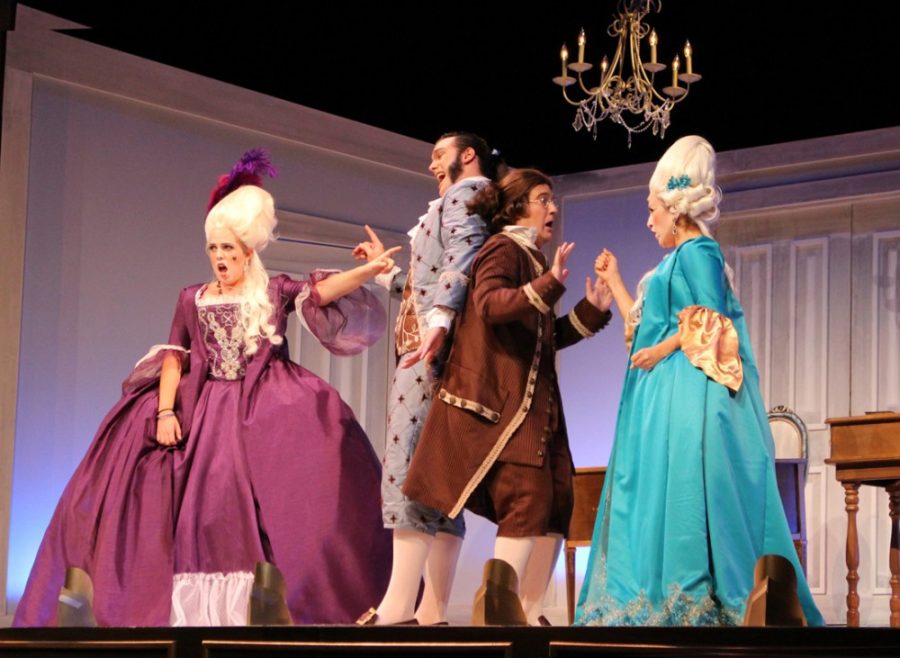The University of Arizona Opera Theater will present its first opera of the fall season titled “An Evening of Intermezzi” this weekend at Crowder Hall. Intermezzi, originally short operatic sequences played in between full-length operas, are performances divided into three different interpretations of opera buffa or comedic opera. Each opera has a different cast with performers of various backgrounds and voices. David Ward, the artistic director of the UA Opera Theater, has had a prolific career starring in musicals such as “Sweeney Todd: The Demon Barber of Fleet Street” and operas such as “La Bohème.” Ward has assembled a lineup of dramatic, enthralling operas to best suit the talents of the school. Here is an overview of what to expect from the three stories:
“La canterina” (or “The Songstress” or “The Diva”)
Originally written in 1767, the first opera has been staged to take place in 1950s Rome. It tells the story of a mother-daughter team of seductresses. The two women, Gasparina and Apollonia, use their charms to trick men into giving them expensive gifts — until one of their schemes goes awry when two different suitors, Don Ettore and Don Pelagio, chance across each other. Full of rage, deception and confrontation, this opera has enough drama to rival William Shakespeare. Composed by Joseph Haydn, the opera will be sung in Italian with Italian recitation.
“L’Ivrogne corrigé” (or “The Reformed Drunkard”)
Set in the Victorian Age, the second opera depicts the antics of two heavy-drinking buddies, Mathurin and Lucas, who seek to wed Mathurin’s niece Colette to Lucas, despite the protests of Mathurine, Mathurin’s wife. In order to redeem to the two drunkards, Mathurine, Colette and her fiancé Cleon disguise themselves as lords of the Underworld in order to lead them back to the path of a moral life. Posing serious ethical questions of nobility and forgiveness, the story offers a valuable lesson behind its acts of trickery. Composed by Christoph Gluck, the opera will be sung in French with dialogue spoken in English.
“Der Schauspieldirektor” (or “The Impresario”)
The third opera is set in 18th-century Vienna as two prima donnas compete for the limelight, much to the dismay of impresario Herr Vogelsang. The elder Madame Herz and ingénue Mademoiselle Silberklang vocally duel while their impresario attempts to appease both of their egos. Eventually, Vogelsang settles their feud by convincing them to be collaborators instead of enemies. Composed by Mozart, the opera will be sung in German with dialogue spoken in English.
_______________
Follow Alexandra Paletta on Twitter.









